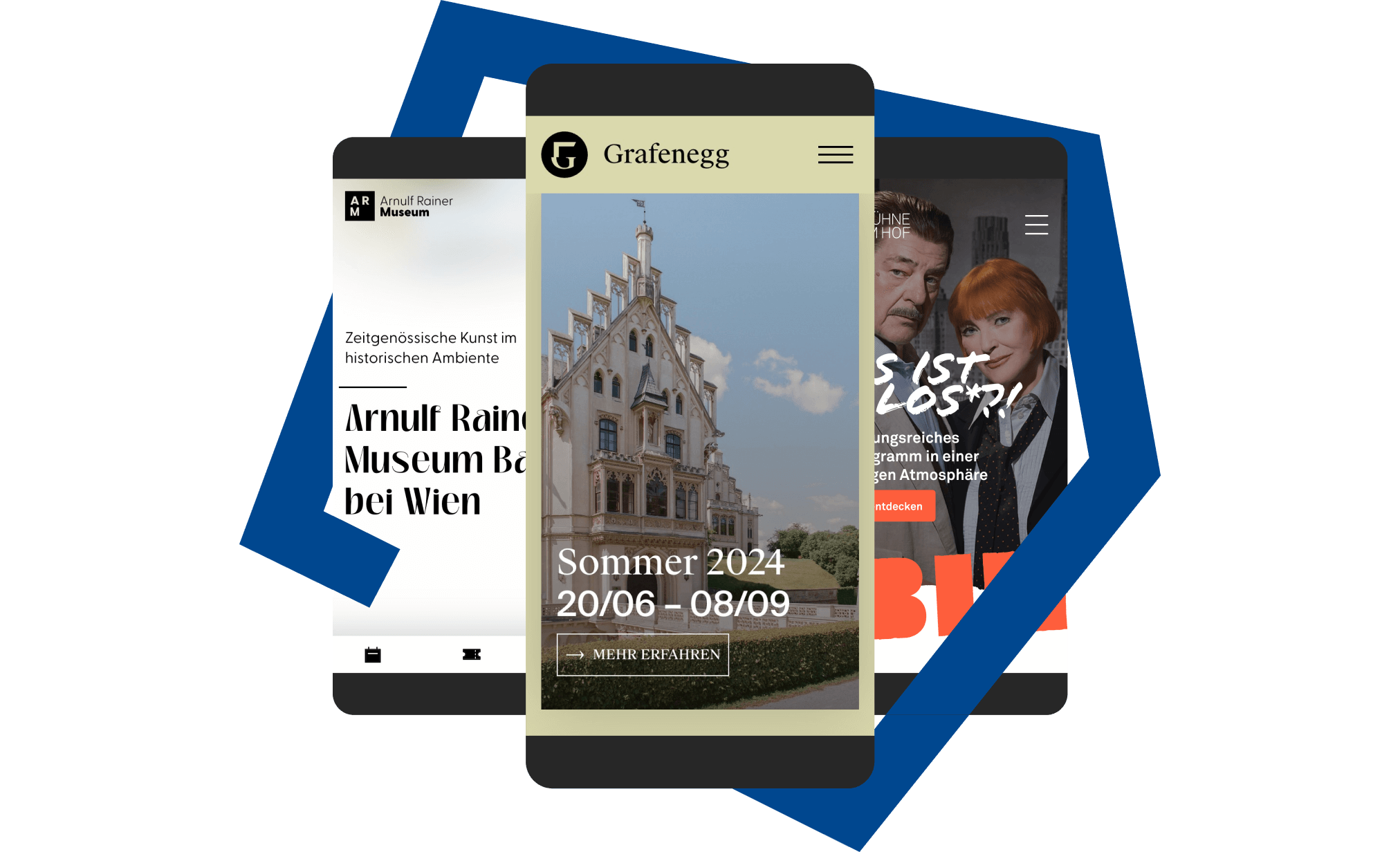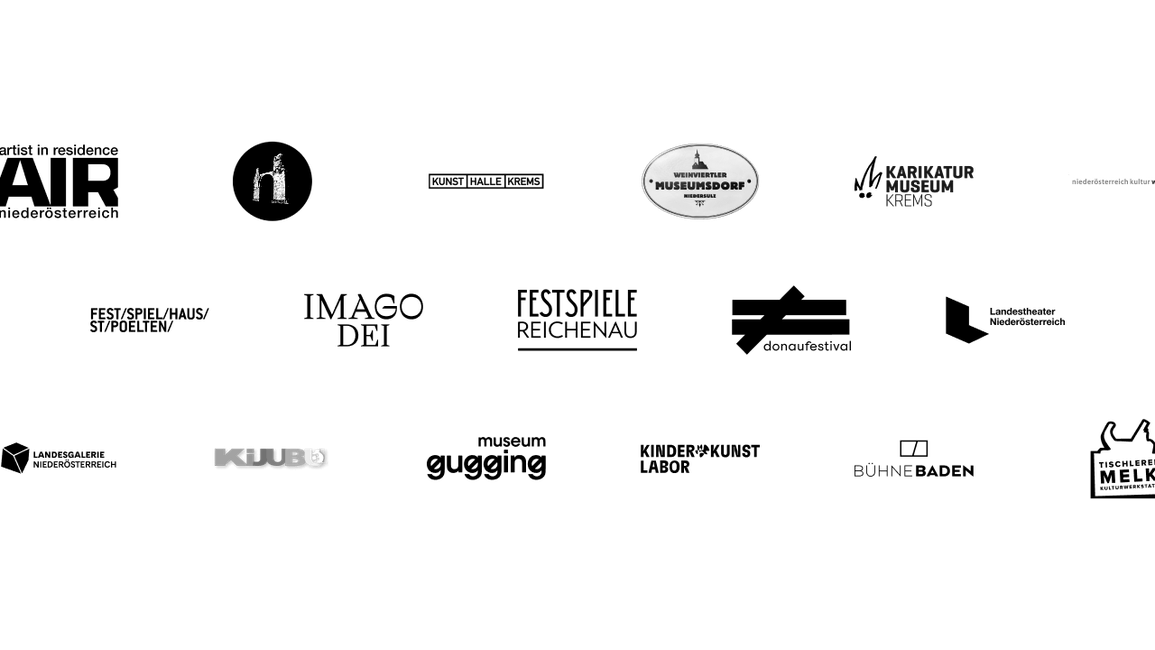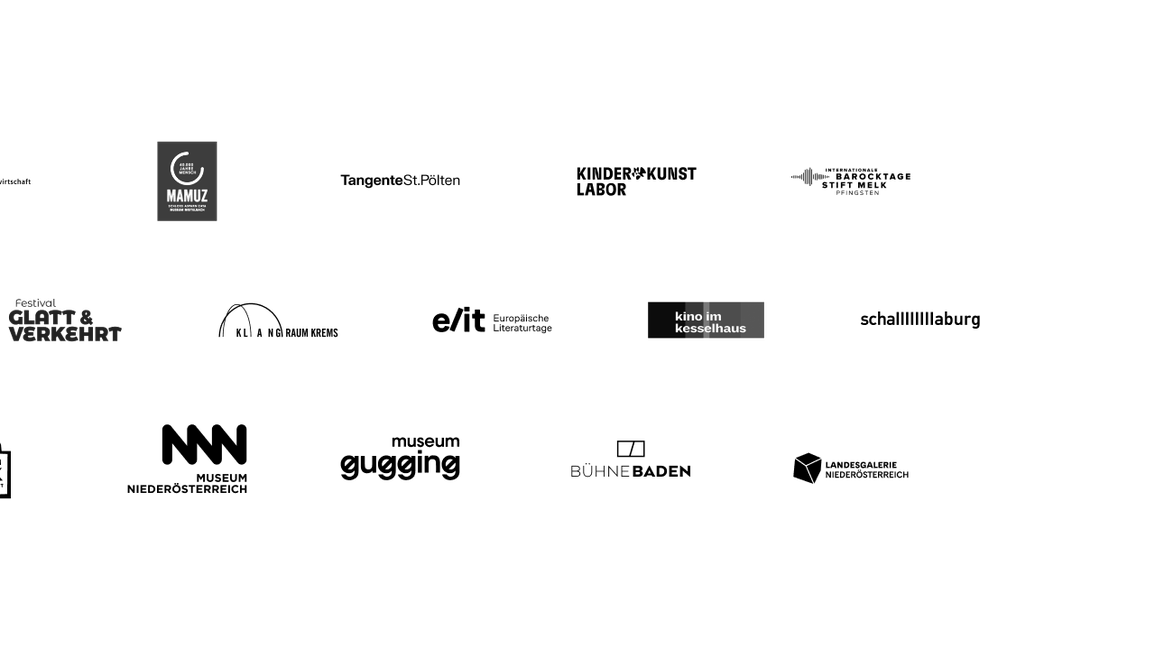



40 brands - 35 websites - One application
The idea of the cultural platform is to orchestrate all the requirements of a complex cultural website centrally by standardizing processes. Future features can be made available easily without having to constantly roll them out to the 40 websites individually. Website features such as data protection, legal notice, terms and conditions, accessibility optimization, SEO and performance optimization are also managed centrally in one place.
Festivals
A wide variety of venues and artistic institutions are brought together under the umbrella of the NÖKU - from festivals and museums to cinemas, orchestras and theaters.
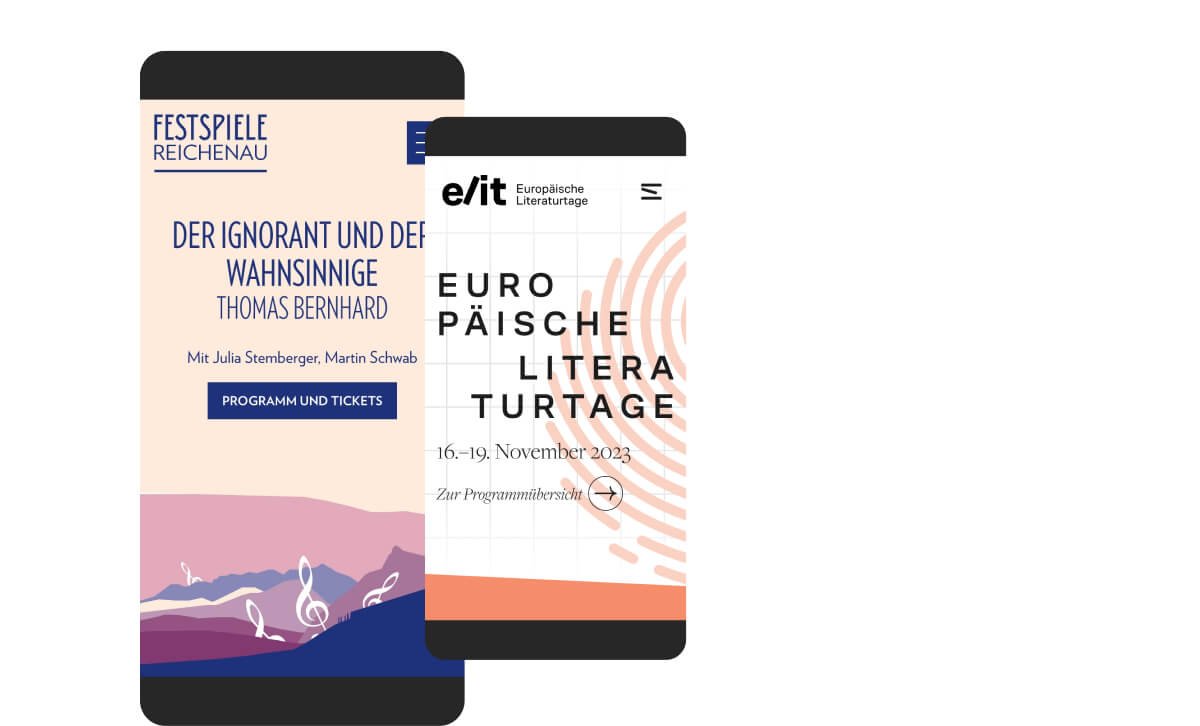
Museums, Art Spaces and Cinemas
Each of these institutions has its own specific content and design requirements for the presentation of its content and information.
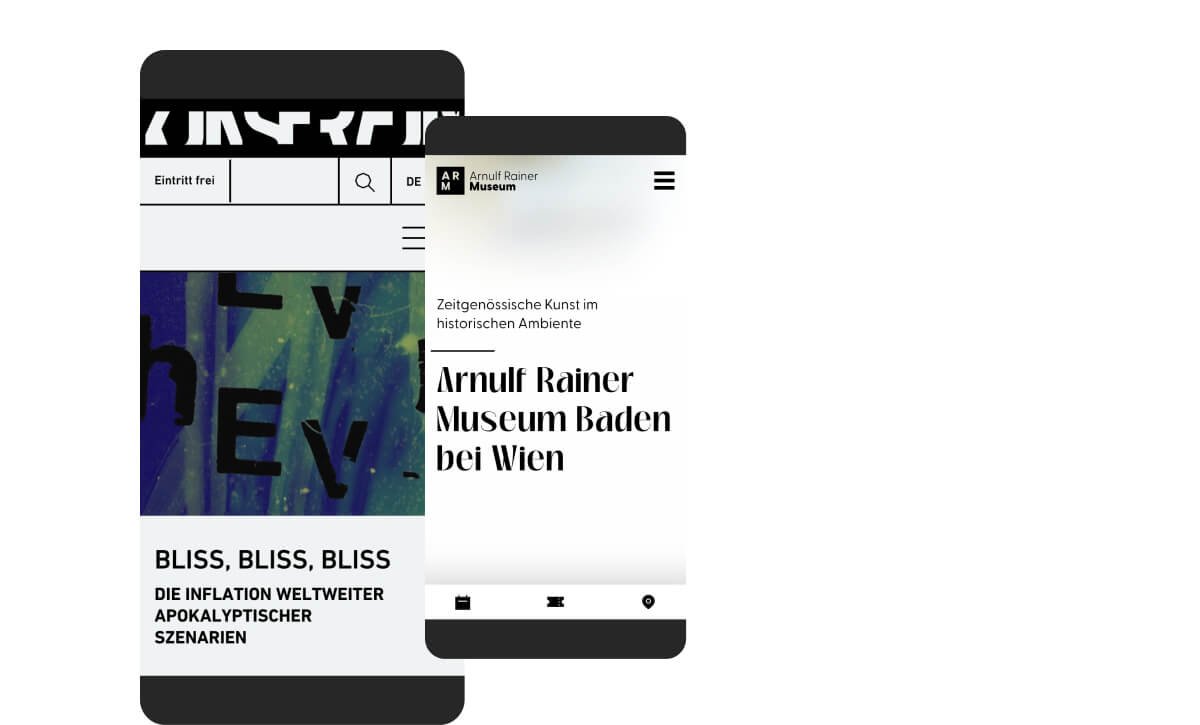
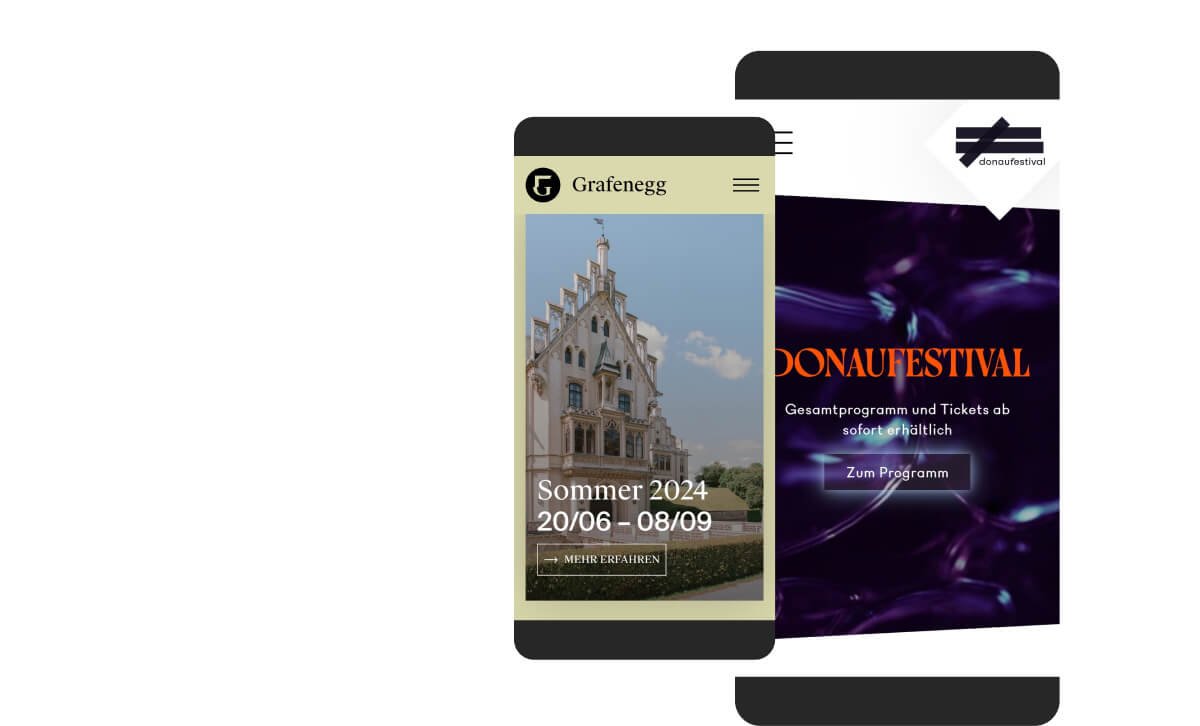
Orchestras and Concerts
The new multi-site architecture makes many components of the websites of heterogeneous artistic institutions centrally manageable.
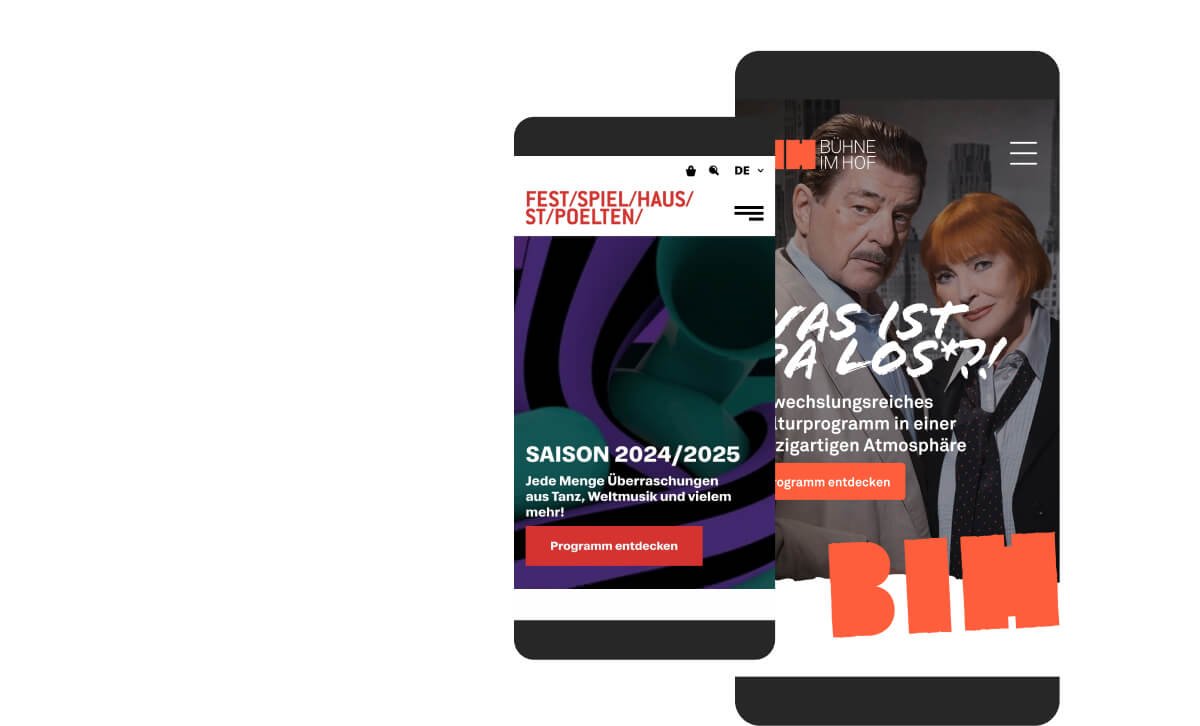
Theaters and Stages
The newly implemented, block-based CMS allows editors to concentrate fully on storytelling tailored to the respective cultural institution.

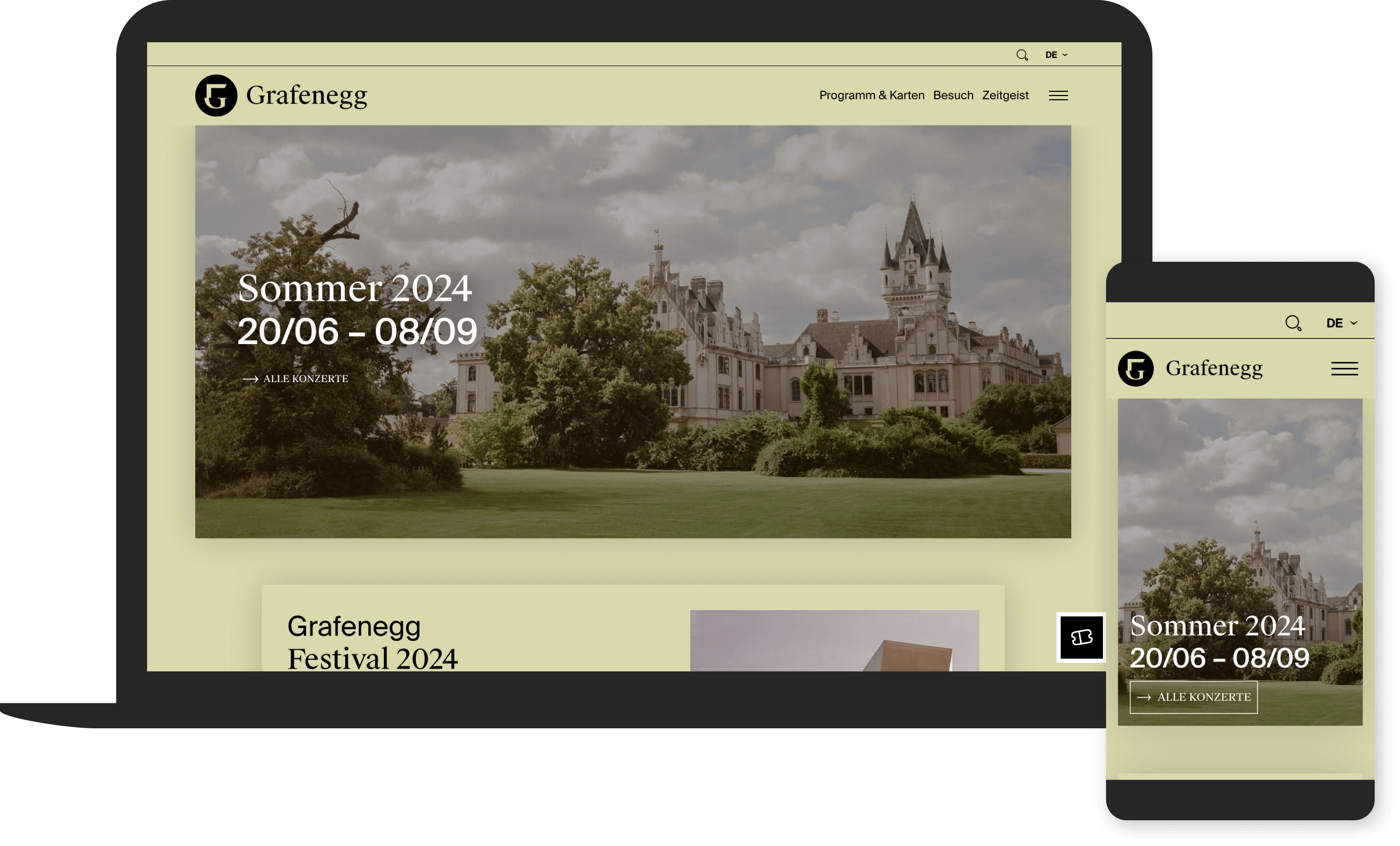
Example 1 – Grafenegg
Grafenegg Castle, located between the picturesque Wachau region and the vibrant metropolis of Vienna, is the venue for national and international concert series that make the hearts of music lovers around the world beat faster. As part of the redesign of the website based on the new multi-site architecture, the navigation and structure were simplified and the site was given a new, modern and expressive design. A central concern was also to significantly improve the user experience - among other things, the program including ticket purchase can be conveniently called up at any time via an overlay using a button without having to leave the detailed page you are on. In addition, the applied filters are displayed in the URL - also for the overlay - and so each detail page can be shared with interested parties via email or messenger.
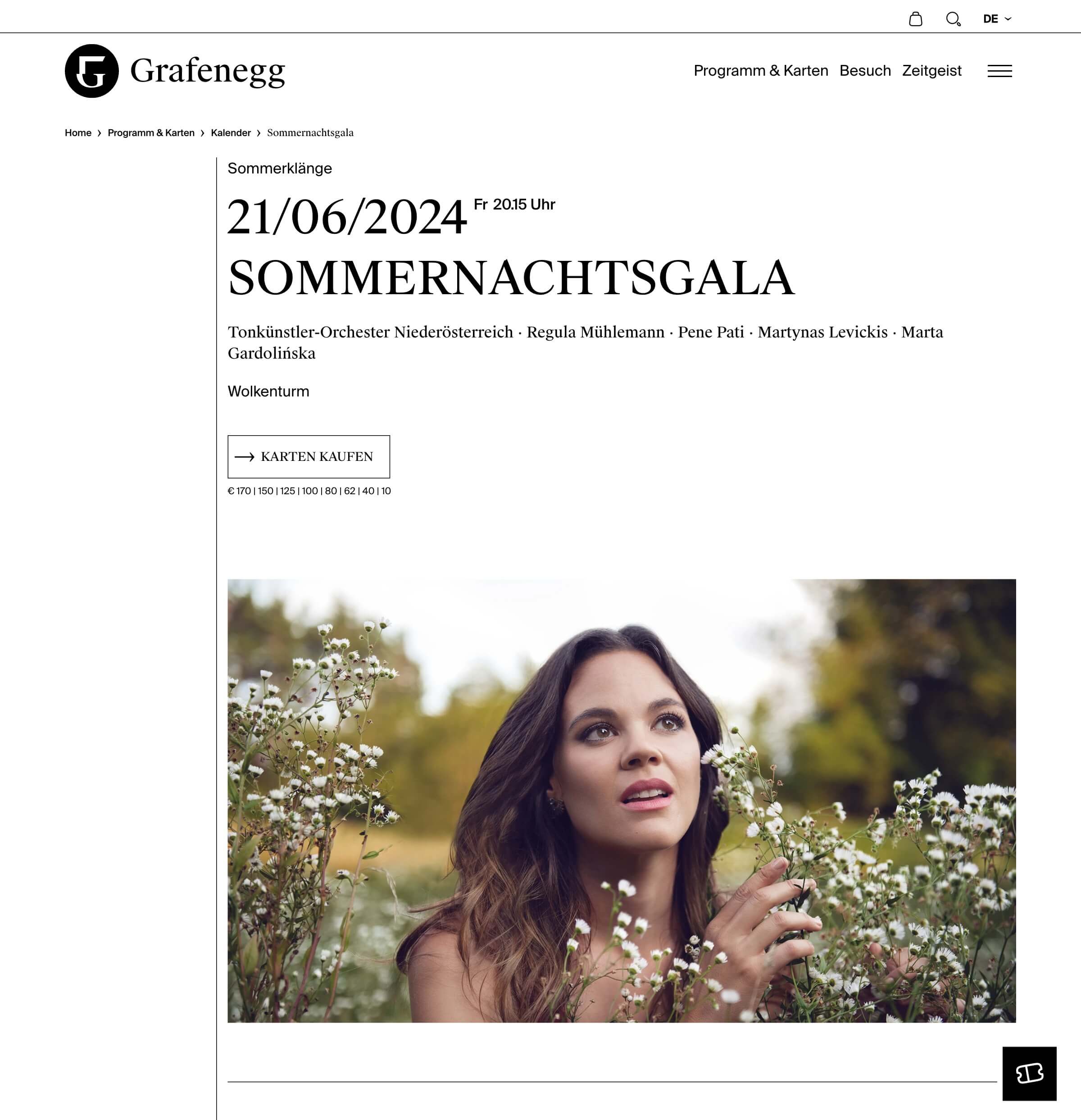
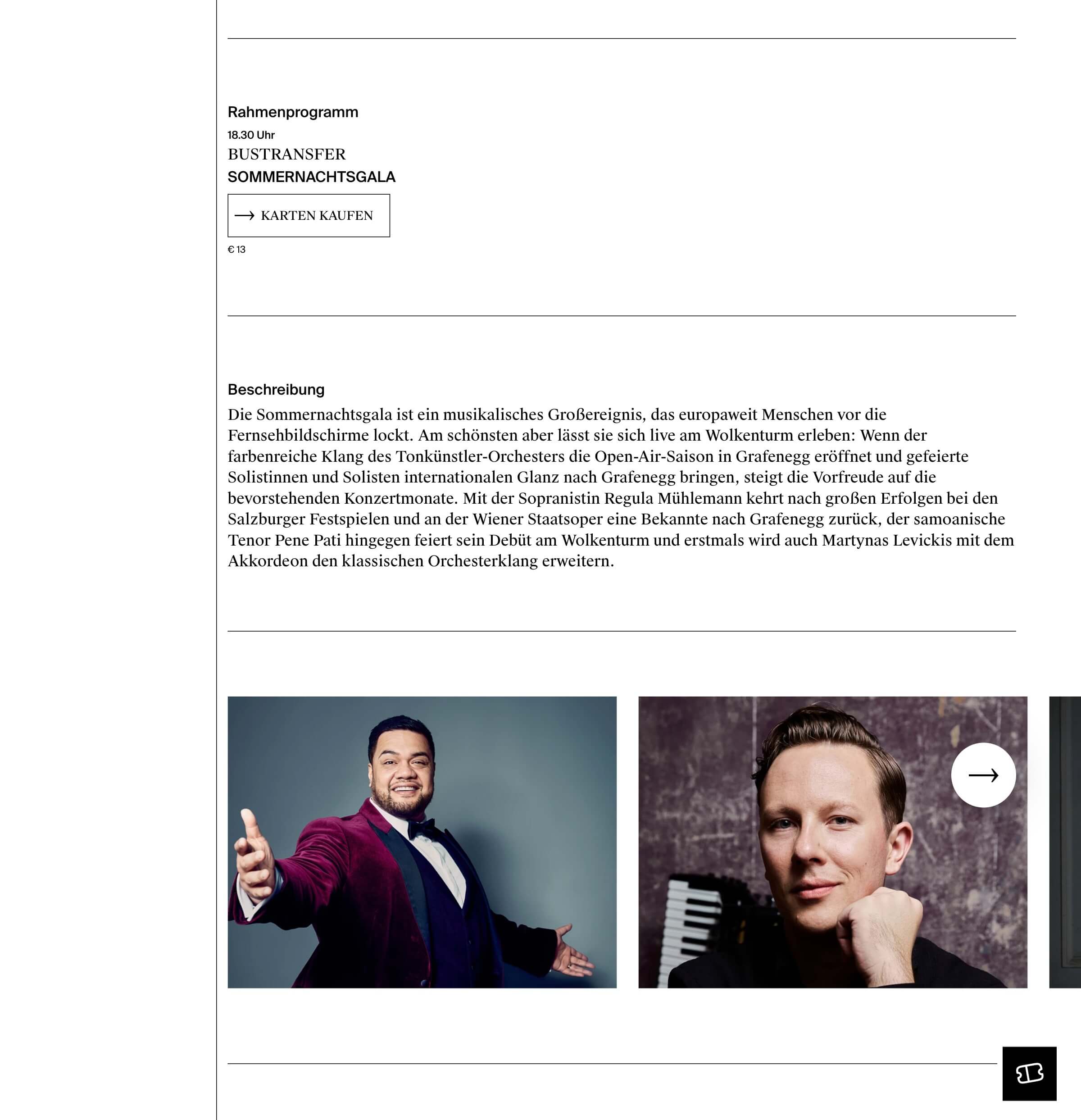

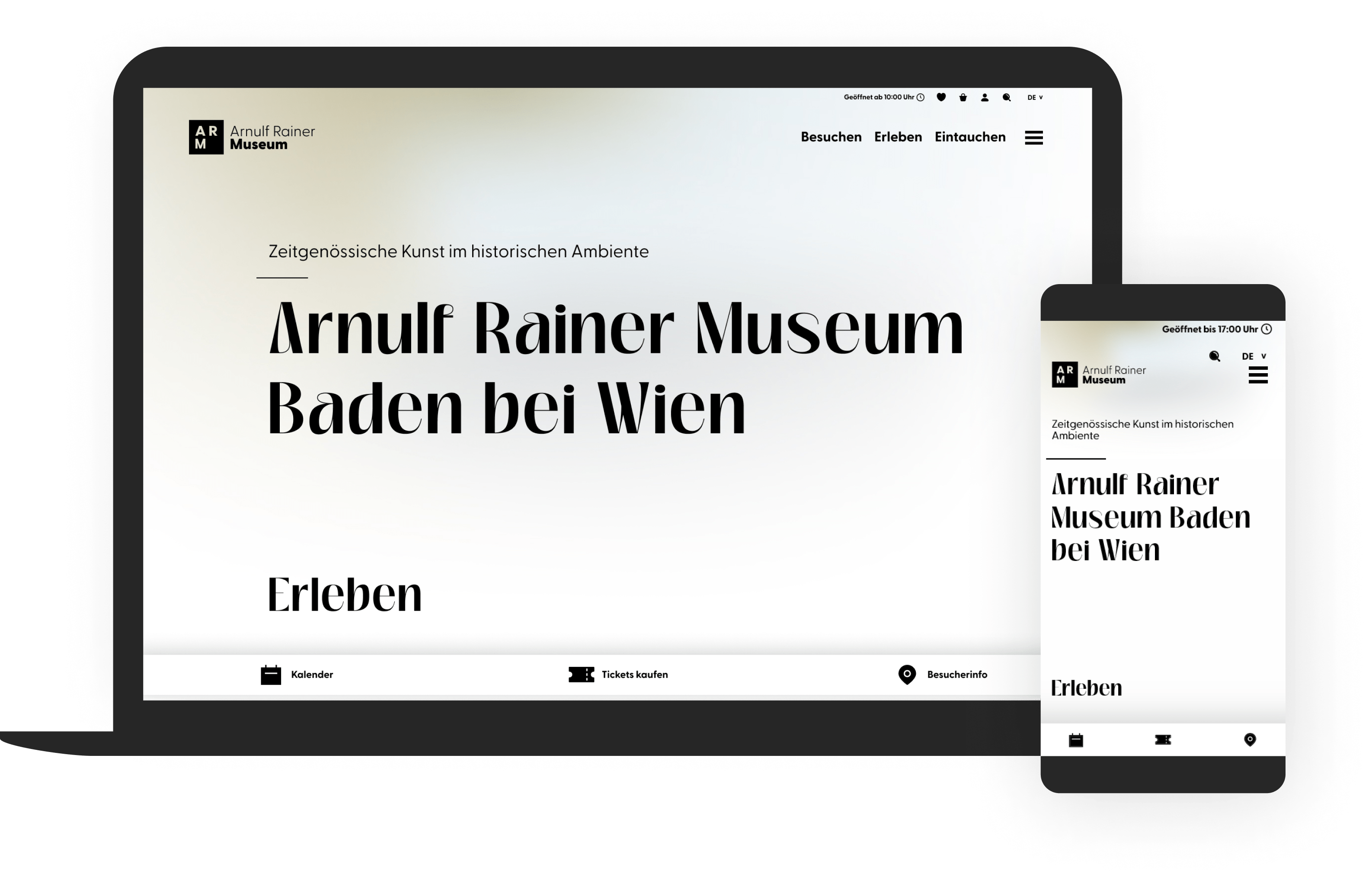
Example 2 – Arnulf Rainer Museum
Another successful example of a modern cultural website is that of the Arnulf Rainer Museum, which presents different exhibitions and cultural formats every year. The streamlining of processes and costs as a result of the multi-site architecture is accompanied by a higher degree of customizability. As part of the project, a comprehensive design system was created to support designers in rolling out the 40 companies. Thanks to the newly implemented, block-based CMS, editors can focus entirely on storytelling tailored to the respective cultural institution and design content easily and intuitively using drag and drop and publish it in multiple languages.
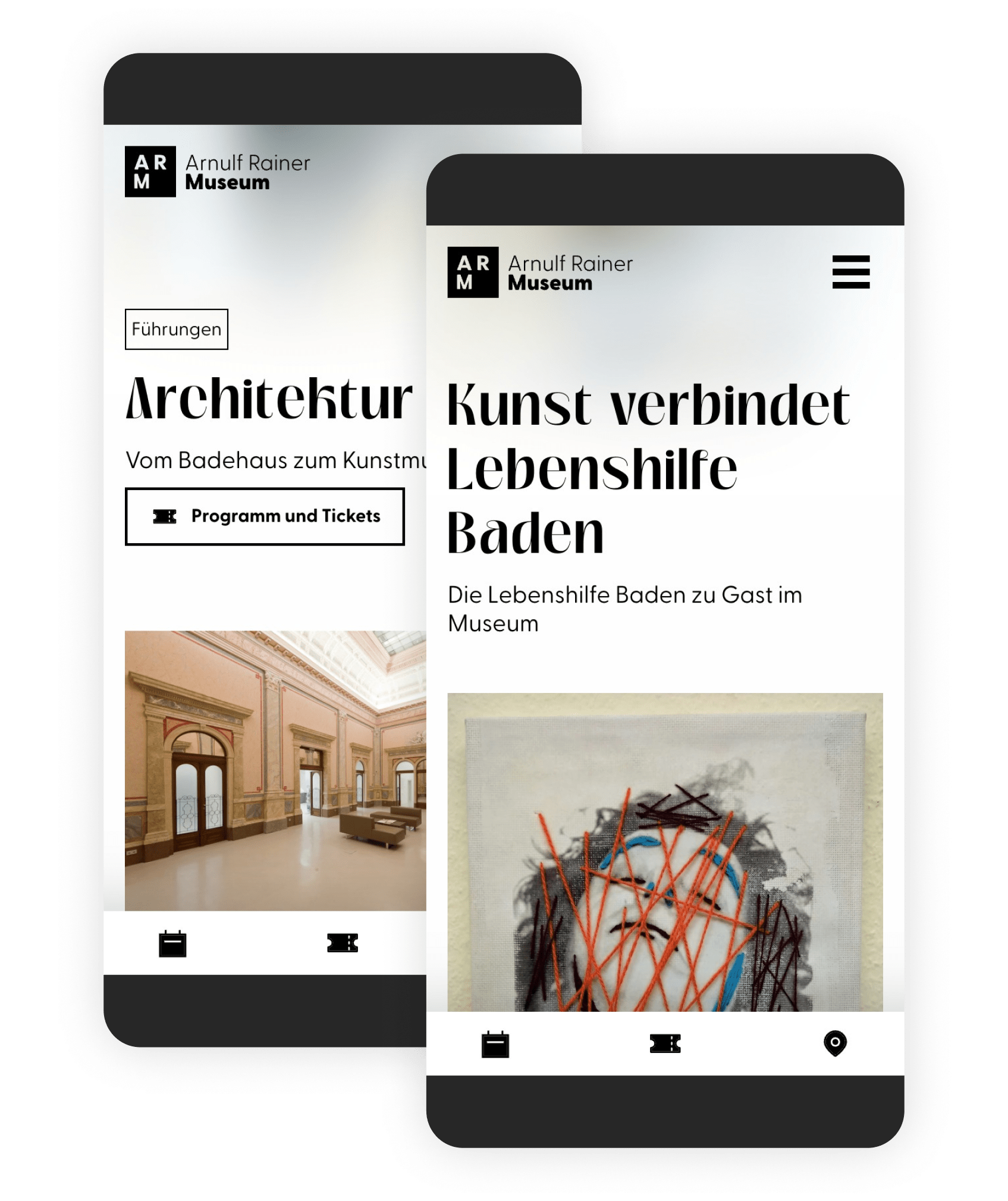
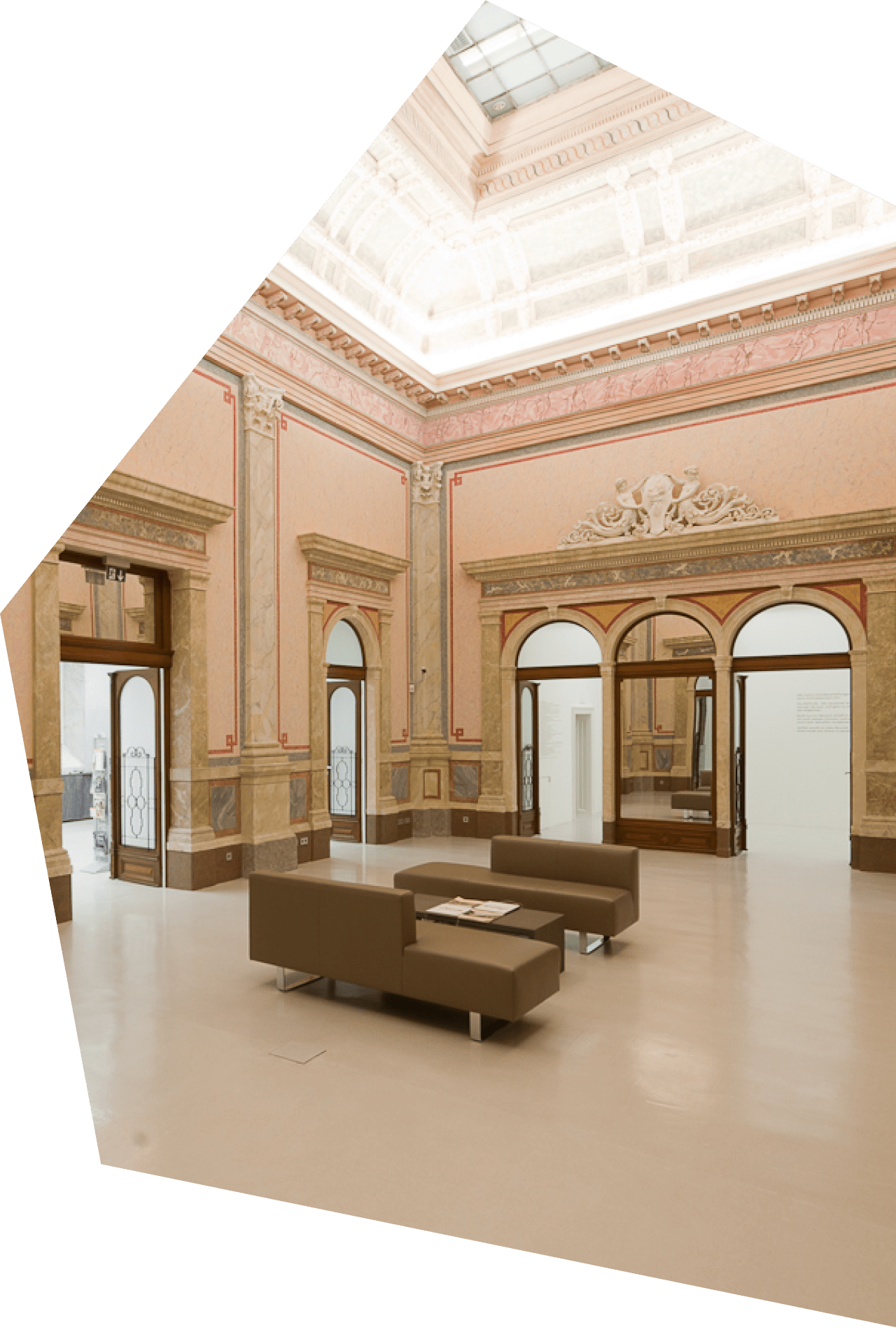
Cost and time savings as a result of centralized systems
Another successful example of a modern cultural website is that of the Arnulf Rainer Museum, which presents different exhibitions and cultural formats every year. The streamlining of processes and costs as a result of the multi-site architecture is accompanied by a higher degree of customizability. As part of the project, a comprehensive design system was created to support designers in rolling out the 40 companies. Thanks to the newly implemented, block-based CMS, editors can focus entirely on storytelling tailored to the respective cultural institution and design content easily and intuitively using drag and drop and publish it in multiple languages.
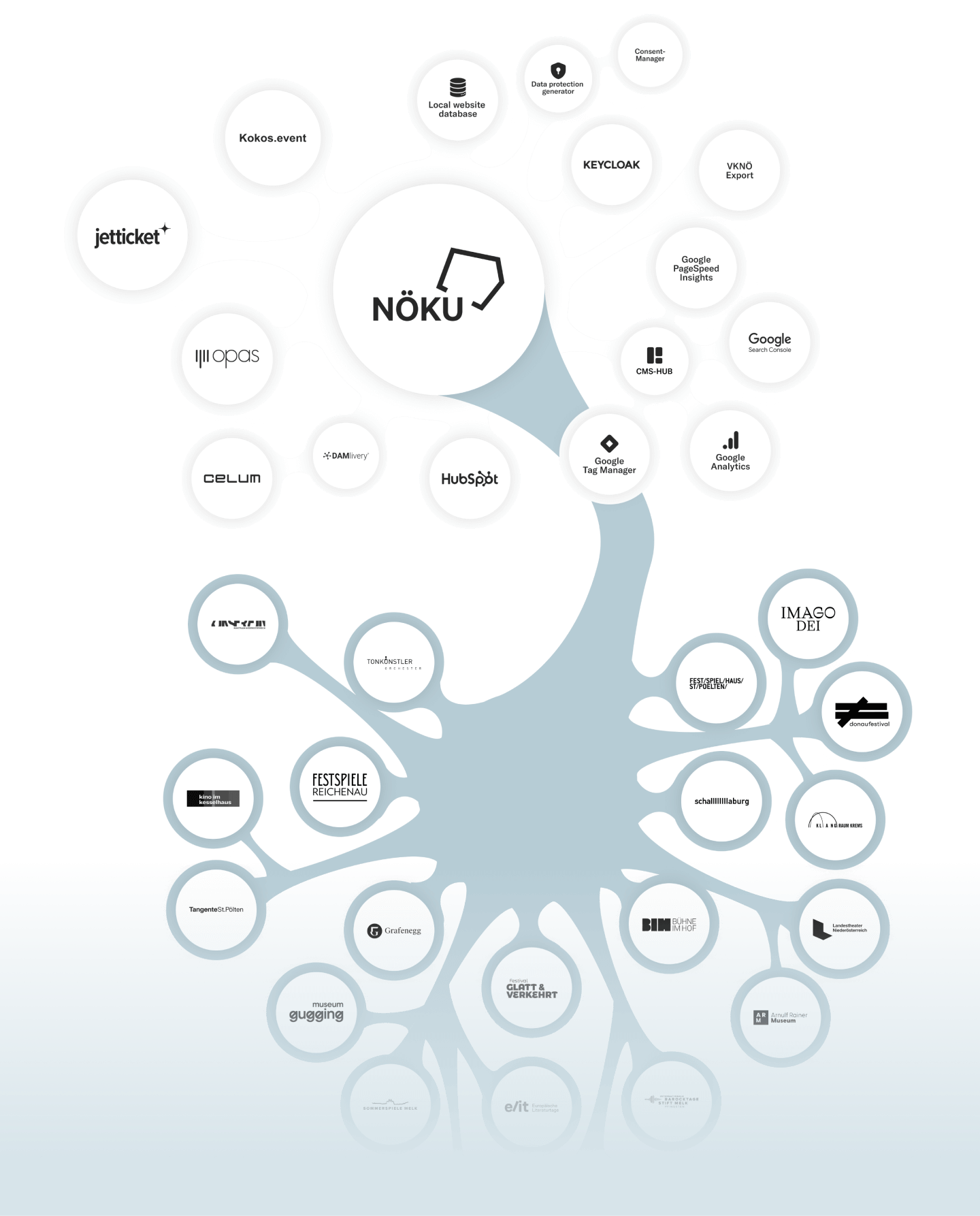

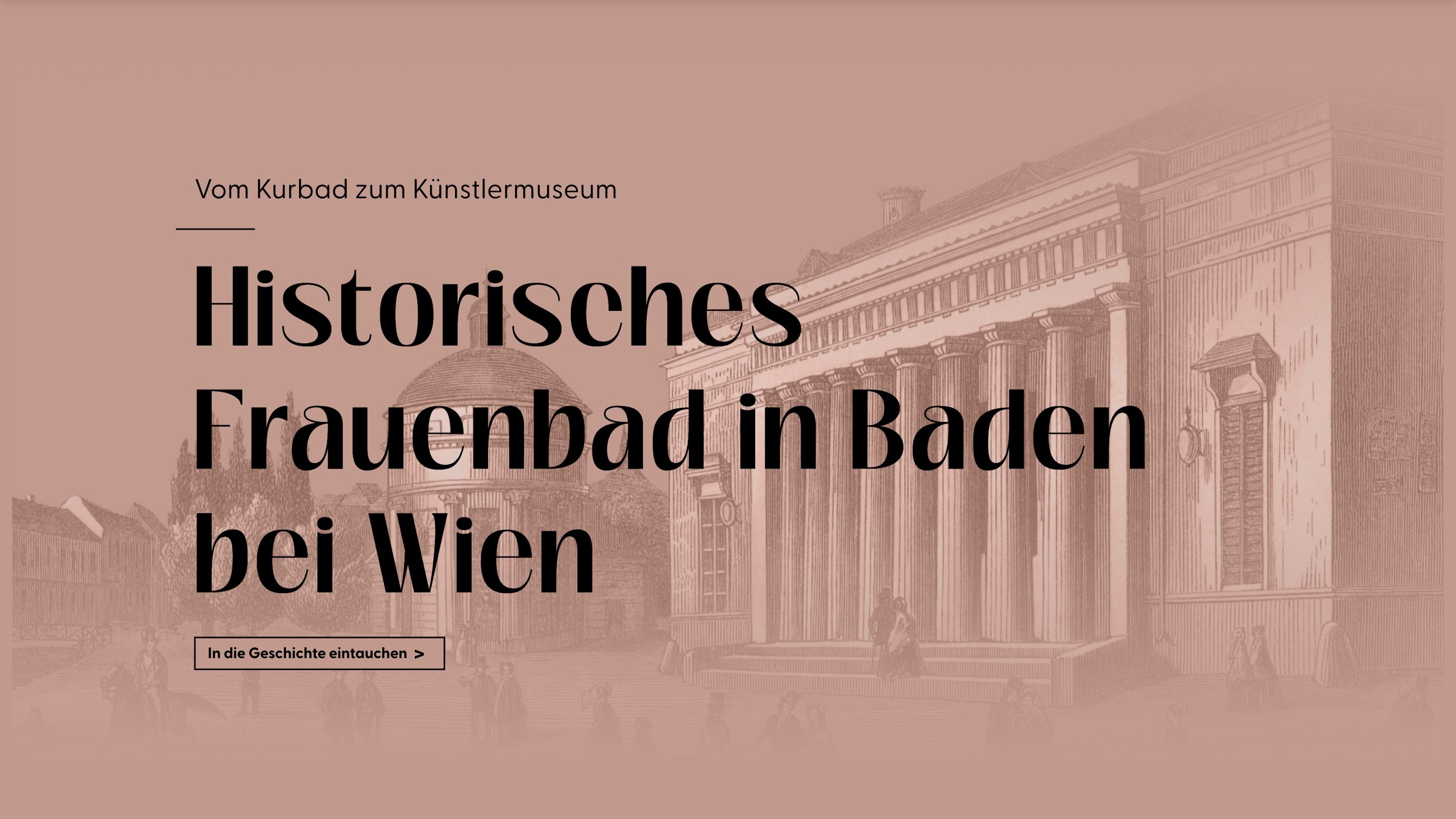
Summary
The new cultural platform with multi-site architecture is a technically extremely sophisticated project that significantly simplifies the realization and organization of the websites of the artistic institutions bundled under the umbrella of the NÖKU Group while still ensuring the highest possible degree of customizability.
-
Client
NÖ Kulturwirtschaft GesmbH.
-
Project
Nöku cultural platform
-
Go-Live
Summer/autumn 2023
-
Duration
12 months
-
Team
1 Project Manager
2 Designer
2 Frontend-Developers
2 Backend Developer
1 IT Operator -
Systemwelt
Kokos (Distribution Software)
JetTicket (Ticketing-System)
Celum (Digital asset management)
Hubspot (CRM)
Python/Django (Webframework)
Nuxt.js/vue.js (Frontend Framework)
Elasticsearch (Onsite Search Engine)
Celery (Task-Management)
Sentry (Error Tacking)
Projects (Selection)
-
_____________
www.grafenegg.com
-
_____________
www.arnulf-rainer-museum.at
-
_____________
www.buehneimhof.at
-
_____________
www.europaeischeliteraturtage.at
-
_____________
www.festspiele-reichenau.at
-
_____________
www.festspielhaus.at
-
_____________
www.imagodei.at
-
_____________
www.kinoimkesselhaus.at
-
_____________
www.glattundverkehrt.at
-
_____________
www.klangraum.at
-
_____________
www.kunstraum.net
-
_____________
www.landestheater.net
-
_____________
www.schallaburg.at
-
_____________
www.donaufestival.at
